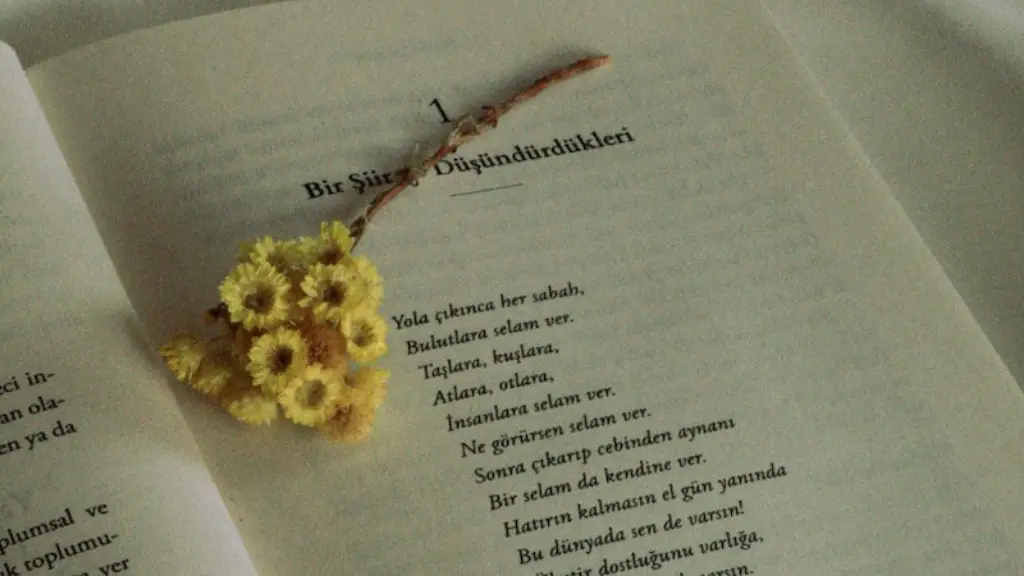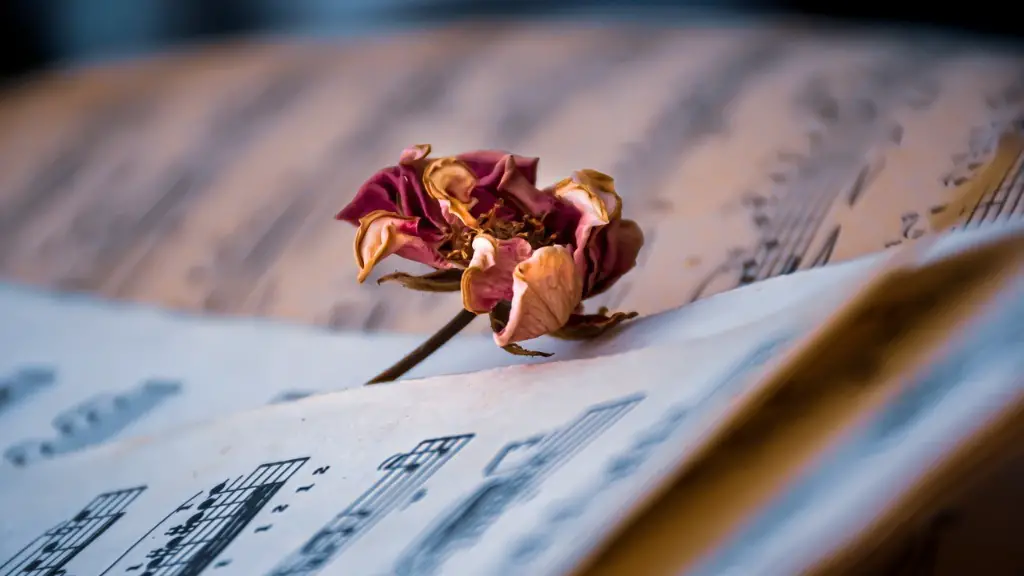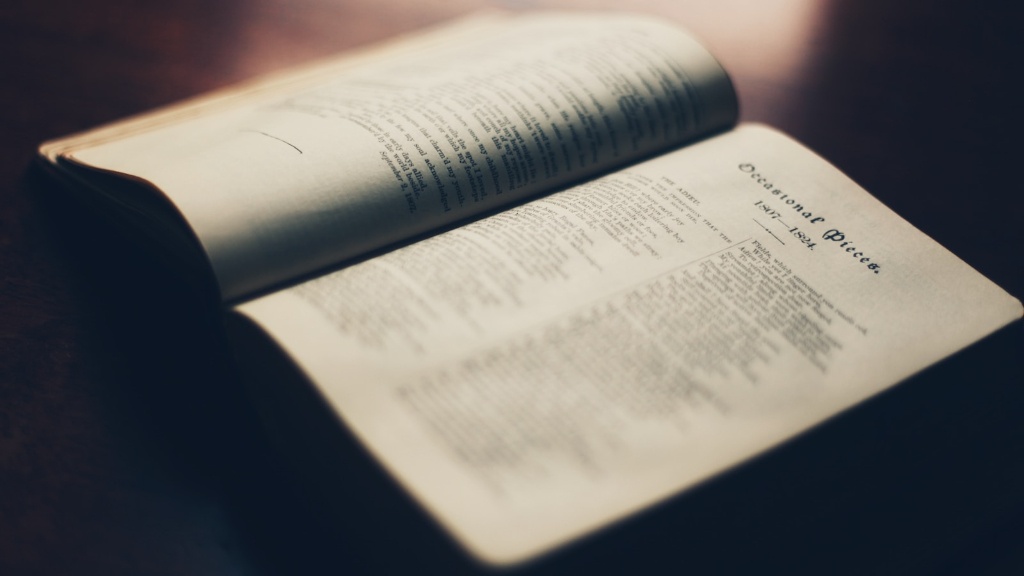What is poetry?
Poetry is a form of literature that uses aesthetic and rhythmic qualities of language—such as Figurative language, rhyme, and meter—to create musical effects and evoke emotions. It can tell stories, comment on current events, express feelings, and inspire readers and listeners alike. To many people, the word “poetry” conjures up images of romantic poets such as William Wordsworth or Edna St. Vincent Millay, but the truth is that poetry has a long and rich history, spanning all cultures and generations.
The origin of poetry
Believed to be the first form of oral literature, poetry can be traced back to ancient Sumerian, Akkadian, Egyptian, and Babylonian civilizations. These cultures used poetry to tell stories and pass down their knowledge. In the Western tradition, some of the earliest known examples of poetry are the Epic of Gilgamesh and the Iliad and Odyssey by Homer, while early Chinese and Japanese elites used poetry to criticize tyranny, praise romance, and record history.
Rhyme and meter
Rhyme and meter are two of poetry’s most recognized features. Modernist poetry often breaks the words into lines and arranges them in a particular way to create a rhythm and intonation. Rhyme is one type of pattern in poetry, where the same sounding words appear at the end of lines, often with a specified pattern. Meter is another type of pattern, where syllables are arranged into a specific kind of unit, such as iambic pentameter. In poetic forms such as sonnets and rondeau, the meter and rhyme schemes are often used alternately.
Types of poetry
There are a variety of different types of poetry, such as narrative, lyric, pastoral, ode, elegy, epic, and dramatic. Narrative poems are stories, whereas lyric poems are expressions of emotion. Pastoral poems are about rural life. A dramatic poem is one containing dialogue between characters. An ode is written to celebrate an individual or event, and an epic is an extremely long poem about heroes, mythology, or history. Finally, an elegy is a poem written in memory of a deceased person.
Analyzing poetry
When analyzing a poem, it is important to consider the words, metaphors, and imagery used. It is also useful to consider the form and any patterns that can be found in the poem. Additionally, readers should consider the structure of the poem and how it is organized. By looking at the syntax, readers can gain a better understanding of the poem’s meaning. Finally, the tone of a poem may affect its interpretation, as different tones can evoke different emotions.
The impact of poetry
From John Donne to Emily Dickinson, poetry has had a powerful impact on the world. It inspires readers to feel emotions and has the ability to alter mindsets and shape perspectives. Poems can bring encouragement and solace in difficult times, while they can also cause readers to focus on greater issues and consider lives and experiences outside their own. In the process, poetry taps into what it means to be human and can be a powerful form of self-expression.
Poetry and literature
The power of poetry is often discussed in the context of literature, and for good reason. Poetry has been used to comment on the world, explore topics of identity, create visions of utopia, and even criticize government. Authors such as T.S. Eliot, Robert Frost, and William Butler Yeats were some of the greatest poets of the 20th century, and their works helped to shape contemporary literature. Today, literary movements such as surrealism, confessionalism, and postmodernism are informed by poetry, as are genres such as science fiction and fantasy.
Poetry and music
Poetry is also closely linked to music. Many poems are written in the form of songs and can be set to music. From the Middle Ages up through today, poets have composed verses to be put to music. Furthermore, today’s most popular songs often incorporate poetic devices, such as rhyme, imagery, and metaphor. Thus, poetry’s influence extends beyond literature into the world of music.
The reader’s experience
The experience of reading a poem is a personal one, as no two readers will interpret a poem in the same way. In many cases, the emotions and imagery described in the poem resonate with the reader, allowing them to build a personal understanding of the text. Furthermore, reading a poem aloud can be a powerful experience, as the rhythm of the words can help to convey the message of the poem even more effectively.
Famous poets and their works
Throughout history, there have been a number of poets who have made an indelible mark on the world of poetry. William Shakespeare’s vast body of work has inspired generations since his death, while the works of Emily Dickinson and Robert Frost continue to influence modern poetic thought. Contemporary poets such as Langston Hughes and Seamus Heaney have also posed important questions about identity and the human condition in their works.
Women in poetry
Though men have traditionally held more prominent positions in the world of poetry, women have made a significant contribution to the genre. The works of female poets such as Sylvia Plath, Anne Sexton, and Adrienne Rich have helped to shape a greater understanding of women’s experiences. Through their works, these writers have shown that women can tell their own stories in powerful and meaningful ways.
The state of poetry today
In recent years, poetry has become more accessible due to the internet and social media. This has opened up poetry to a wider audience, and it has also made it easier for budding poets to share their work with the world. In addition, a growing number of publications and organizations have helped to promote the works of new and established poets alike. As a result, the landscape of poetry continues to evolve and become more diverse.
Technological advancements
Today, technological advances such as artificial intelligence and machine learning can analyze poetry with increased efficiency. For example, algorithms can be used to analyze large bodies of work for recurring themes, language features, and other patterns within the poems. This can help scholars and researchers to gain a better understanding of the poet’s work and the messages being conveyed.
The power of poetry
Poetry is a powerful form of communication. It has the power to engage people emotionally, provoke thought, and create connections between readers and writers. It can tell stories, motivate others, and inspire creativity. Ultimately, the power of poetry lies in its capacity to bring people together and provide hope in difficult times.



